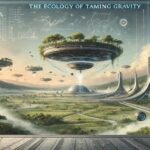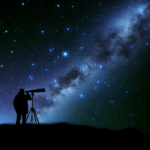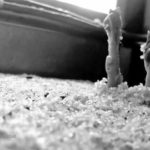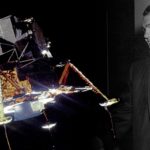Statistically speaking, there should be alien life in our universe. So why haven’t we found any evidence of intelligent life? Both panspermia (life was seeded from space) and fast biogenesis (fast development of life on any planet) suggest that there should be life everywhere. The Fermi paradox says that even if other planets had life, […]
science
"Science is the the intellectual and practical activity encompassing the systematic study of the structure and behavior of the physical and natural world through observation and experiment." - Definition
Interest in the field of science that may have something to do with Taming Gravity!
Is The Alcubierre Warp Drive Possible? | Space Time | PBS Digital Studios
Warp drive would change a lot when it comes to space travel. We’d actually be able to get to other worlds. Right now it would take too long to get to any so isn’t really an option. We’d die before we ever even got close. This discusses this warp drive and its likelihood. This is […]
The Ecology of Taming Gravity
Unlocking the Mysteries of Gravity: Sustainable Innovations for the Future Gravity, the force that binds us to the Earth and governs the motion of celestial bodies, has long fascinated humanity. The concept of taming gravity—mastering and manipulating this fundamental force—has been a persistent theme in science fiction, folklore, and the dreams of inventors and scientists […]
5 Things That Will Happen When Aliens Arrive
Steven Hawkins believes alien life exists outside of earth. He also doesn’t believe it would be good if they discover us before we discover them. The pentagon even put out a list of what we would do if we encountered aliens and we assume that they would come up with a similar plan. The aliens […]
5 Reasons Why We Cant Find Extraterrestrial Life – The Fermi Paradox
Much to the disappointment of scientists and alien enthusiasts, there is simply no evidence for advanced life from other planets. However, due the vastness of the universe and the number of stars, it seems highly likely that such life does exist somewhere. So why haven’t we found it? The Fermi Paradox seeks to explain […]
Unraveling the Mysteries of Space-Time: A Beginner’s Guide
Introduction to Space-Time What is Space-Time? Space-time is a concept that merges the three dimensions of space (length, width, and height) with the fourth dimension of time into a single four-dimensional continuum. This framework allows us to understand how objects and events are positioned and interact within the universe. Imagine space-time as a fabric […]
Experiment suggests potatoes really will grow on Mars
An experiment suggests that potatoes will actually grow on Mars. There was an experiment done that showed how a potato could thrive in an atmosphere like Mars. The results so far are very positive. The potato is already a very adaptive vegetable and Mars is a rough environment. It is an exciting time. Key Takeaways: […]
The Race to a Habitable Exoplanet – Time Warp Challenge | Space Time
If you travel faster than the speed of light, you can actually travel back in time. Breaking the cosmic speed limit, does not only allow time to be reversed, it actually demands it. The speed of light is very fast and being able to travel faster than it is nearly impossible. Time travel is an […]
Are ghost ships real? – Peter B. Campbell
Some people may wonder if ghost ships are real. There have been many reports of ghost ships being seen. There is no way to find out that they are real, but the stories are definitely real and we can gain a lot from them. Ghost ships have fueled the fire behind many stories. There could […]
Jack Garman, Whose Judgment Call Saved Moon Landing, Dies at 72
When we think of the moments that make history, we think of the people who were in the spotlight. It is too easy to overlook those in the background who also made the event possible. Such is the case of Jack Garman, who was an engineer for NASA in 1969 when the U.S. made its […]










